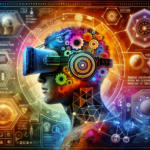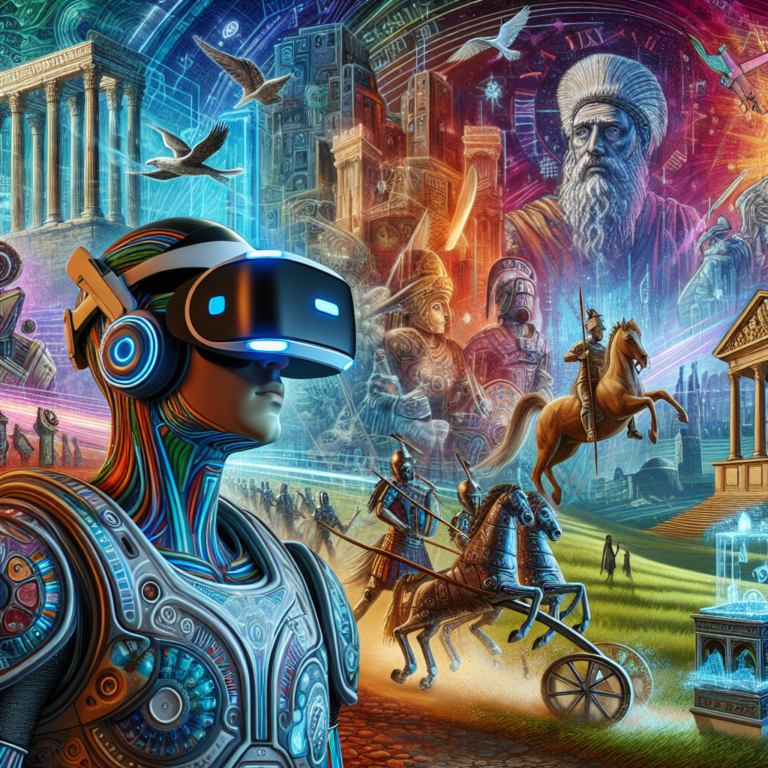Step Beyond Reality: Time Travel Experiences in Entertainment with Virtual Reality 🚀
Unleashing the Power of Virtual Reality
In recent years, virtual reality (VR) has transformed the landscape of entertainment. From immersive gaming experiences to stimulating virtual tours, VR has redefined how we engage with digital content. But what if the magic of VR could take us even further than merely experiencing the present? Imagine stepping into a world where time travel is possible. Sounds intriguing, right? Buckle up as we explore the concept of using virtual reality to enable breathtaking time travel experiences in entertainment!
The Fascination of Time Travel
Across cultures and generations, the idea of time travel has fascinated humanity. Movies, books, and shows have triumphantly illustrated the concept, sparking our imagination. Here are some reasons why time travel holds such an all-consuming allure:
- Curiosity: The chance to witness historical events firsthand invokes a sense of wonder.
- Control: Traveling backward or forward in time allows us to navigate our defining moments or explore our future.
- Adventure: The thrill of interacting with different timelines and characters can deliver an adrenaline-fueled experience.
How Virtual Reality Can Facilitate Time Travel
Immersive Environments
One of the most exciting aspects of VR is its ability to create immersive environments that feel incredibly real. By integrating sophisticated graphics and spatial audio, VR can transport users back to pivotal moments in time. Picture yourself walking the bustling streets of ancient Rome or standing in awe as the first moon landing unfolds before you. Through VR, users can experience historical contexts that textbooks can only describe.
Interactive Storytelling
Virtual reality allows for interactive storytelling, meaning that beyond simply observing, users can engage with their surroundings. Imagine being a character in your favorite time travel narrative, where choices matter and outcomes change based on your decisions. This interactive aspect not only heightens the experience but also gives users a more personal connection to the storyline.
Gamification of Time Travel
Gaming naturally lends itself to VR, and time travel could introduce a thrilling layer of gamification. Developers could design challenges where players must adjust historical events or complete quests across different eras. Here are a few entertaining possibilities:
- Time Paradoxes: Players can solve puzzles that could potentially alter timelines, with consequences that ripple throughout their VR experience.
- Historical Figures: Players could interact with famous personalities, either to assist them or confront them in various adventures.
- Alternate Realities: Create scenarios where players can explore “what-if” situations, like meeting a future version of themselves!
The Potential of Educational Experiences
Learning History in a New Way
Time travel via VR doesn’t only cater to entertainment; it also presents a revolutionary approach to education. Imagine classrooms where students can visit critical historical moments instead of merely reading about them. This hands-on method would enhance retention, foster empathy, and make learning much more engaging. Key applications could include:
- Field Trips: Students could visit ancient civilizations, famous speeches, or pivotal battles, all from their classrooms.
- Experiential Learning: Faculty could create immersive environments that enable students to understand complex subjects like the Renaissance or the Industrial Revolution.
- Interactivity: Interactive simulations can allow students to participate, fostering critical thinking as they navigate historical dilemmas.
Expanding Cultural Awareness
In addition to education, VR time travel could expand our cultural awareness by exposing users to diverse cultures across different timelines. Think about meandering through traditional festivals or learning about customs and practices from evanescent societies. The potential for cultural exchange and understanding is limitless with these experiences.
Challenges in Creating Time Travel VR Experiences
Technological Limitations
Despite the excitement surrounding VR and the concept of time travel, there are significant technological limitations to consider. Building realistic environments that capture the essence of specific eras demands advanced graphics, sound design, and narrative development. While VR technology is advancing rapidly, it still has room for improvement, particularly in:
- Realism: Achieving a genuine feel of certain historical elements requires more than just impressive visuals.
- Interaction: Creating seamless and meaningful interactions within the virtual world is crucial for immersion.
- Hardware: Users need devices capable of delivering high-quality VR experiences, which may limit access for some audiences.
Ethical Considerations
As with any emerging technology, there are ethical considerations to keep in mind. How do users engage with sensitive historical events? Developers must approach this delicately to ensure respect for the real-life implications of history. Balancing entertainment and education without trivializing significant occurrences will be paramount.
Conclusion: The Future of Time Travel in Entertainment
As it stands, the dream of time travel through virtual reality is not just an exciting concept; it’s a tangible possibility that can transform entertainment and education. The future holds endless opportunities for immersive experiences that captivate the mind, inspire curiosity, and enlighten hearts. As technology continues to evolve, so too will our experiences within this digital realm, bringing us closer to history than ever before!




0 Comments